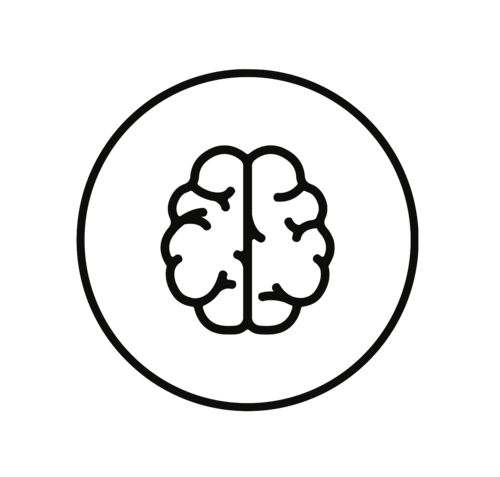ADHD & Self-Regulation
At Mighty Village, we recognize that ADHD is not a one-size-fits-all diagnosis. Each individual's experience is unique, with distinct patterns of brain activity influencing their attention, behavior, and emotional regulation. That's why we employ a comprehensive, personalized approach to assessment and care.
How We Assess
We combine neuropsychological testing with QEEG brain mapping to gain a holistic understanding of each individual's cognitive and neurological profile.
- Neuropsychological testing evaluates attention, working memory, executive functioning, processing speed, academic skills, and emotional functioning. This helps us understand how the brain performs in daily life — at school, at home, and in relationships.
- Quantitative EEG (QEEG), or brain mapping, provides a real-time look at brain activity, identifying specific patterns of dysregulation. This noninvasive assessment reveals how different brainwave patterns may contribute to symptoms of inattention, impulsivity, or emotional challenges.
Understanding ADHD Subtypes
Research and clinical practice have identified multiple distinct EEG profiles among individuals with ADHD. Recognizing these subtypes allows for more targeted and effective interventions. Some common profiles include:
- High Theta/Beta Ratio (Classic ADHD)
Characterized by excessive slow-wave activity (theta) and reduced fast-wave activity (beta), leading to slowed cognitive processing and difficulty maintaining focus. - Frontal Beta Spindling (The Distractible Mind)
Involves hyperactive, racing thoughts and heightened sensitivity to external stimuli, resulting in constant distraction and sensory overload. - Slow-Wave Excess from Early Life Trauma
Early-life complications, such as birth trauma or high fevers, can result in excess slow-wave activity (delta and theta), affecting cognitive speed and alertness. - Central Slowing and Executive Function Deficits
Generalized slowing in brain activity can impair the ability to process and execute tasks efficiently, often associated with inattention-based ADHD. - Persistent Mu Rhythm and Social Processing Challenges
Persistent mu rhythm activity, present when mirror neurons are not engaged, can contribute to difficulties with social interaction and emotional attunement. - Fast Alpha Peak Frequency (The Gifted Yet Underperforming Student)
A faster-than-normal alpha peak frequency may lead to boredom and disengagement in structured academic settings, despite high intelligence.
Understanding these subtypes helps us tailor interventions to each individual's unique neurological profile.
Treatment Options
Based on a comprehensive assessment, we offer personalized treatment plans designed to support each child’s unique developmental needs. These may include:
- Neurofeedback – Real-time brain training to strengthen focus, promote calm, and build self-regulation
- Neurostimulation – Gentle, noninvasive stimulation to support healthy brainwave activity and improve cognitive flexibility
- Parent consultations – Collaborative sessions to help families create supportive routines and manage behavior at home
- Behavioral therapy and skill-building – Targeted support for executive functioning, emotional regulation, and resilience
- Educational assessment and school collaboration – Guidance for students experiencing learning challenges, including comprehensive evaluation and advocacy to ensure they receive appropriate school-based support
Many families come to us for assessment and treatment, while others seek only one or the other. Some are exploring alternatives to medication, while others are already using it but feel it does not fully address their needs or have concerns about its long-term effects. Some find medication helpful but wish to further optimize their child’s progress. Regardless of where you are in the process, we work alongside you to make thoughtful, informed decisions that support your child’s unique needs and long-term development.
Ready to Take the Next Step?
We’re here to help you understand your child’s brain, build on their strengths, and support their growth with confidence and care. Contact us to learn more or schedule an initial consultation.



